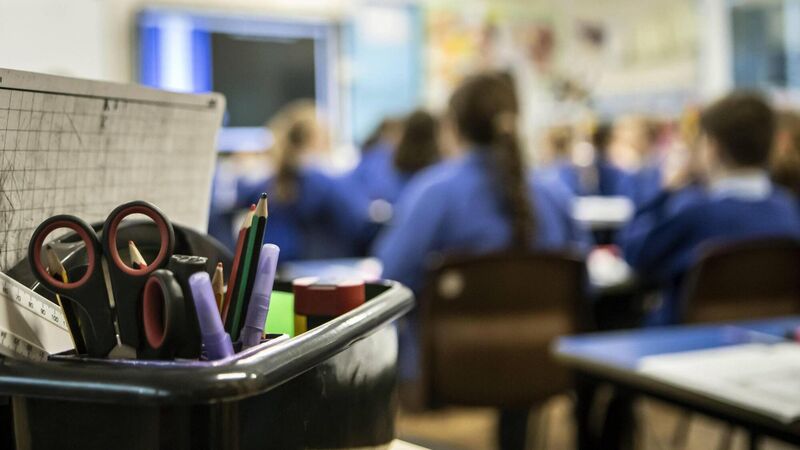'He can now have access to the full education he deserves': Cork family welcome announcement on new in-class positions for ISL interpreters

Under the scheme, a package of dedicated specialist ISL supports will be allocated to relevant schools so these students have a more inclusive school experience.
The family of a profoundly deaf Cork child has welcomed today’s official announcement of the creation of in-classroom positions for fully qualified Irish Sign Language interpreters.
The new scheme is targeted at children and young people attending primary, special and post-primary school who were born without an auditory nerve or due to infection, disease, trauma, failed technology intervention (for example cochlear implants), their auditory nerve has ceased to function completely and whose primary means of communication is using Irish Sign Language.
Under the scheme, a package of dedicated specialist ISL supports will be allocated to relevant schools so these students have a more inclusive school experience.
Minister of State for Special Education and Inclusion @josephamadigan welcomes announcement of scheme for provision of Irish Sign Language (ISL) in-school support for students who are Deaf and whose primary means of communication is ISL. pic.twitter.com/enA5QVdOAm
— Department of Education and Youth (@Education_Ire) March 2, 2022
Chloe Butler, from Midleton, whose son nine-year-old son Joshua was born without an auditory nerve and is profoundly deaf, said the announcement was good news for families of deaf children all over the country.
“This means Josh can now have access to the full education he deserves, like any other child, like any other citizen of Ireland,” Ms Butler said.
Ms Butler said the development had come about after years of campaigning by families of deaf children to gain them full access to the education curriculum in their native language, Irish Sign Language (ISL).
The ISL Act of 2017 established ISL as an official language of Ireland, alongside Irish and English, and the Act places a statutory duty on all public bodies to provide free interpretation for all statutory services and entitlements, including education.
It is understood that the new in-classroom positions, which are to be filled by people with a specialised four-year degree, will be on a stand-alone pay grade expected to start at approximately €32,000, rising to around €67,000.
Ms Butler singled out for thanks the Geary family of Ballyhooly, whose 13-year-old son Calum is profoundly deaf, and who has campaigned for years for fully qualified in-classroom ISL interpreters.
The Geary family has long highlighted the effects that a lack of fully qualified in-classroom interpreter have had upon Calum, an extremely bright child who has fallen behind his twin brother who has full hearing.
Calum’s father Andrew has argued that without proper in-classroom interpretation, Calum and other profoundly deaf children have been denied their constitutional right to a full education.
“I want to thank Andrew Geary for all the hard work he’s put in for all of our children, and I hope now that kids like Calum and Joshua can be recognized as full citizens of Ireland,” Ms Butler told The Echo.
Cork North Central TD Pádraig O’Sullivan also welcomed the news, and he said it came as the result of a long campaign by families of deaf children.
“I’m just glad for the families who have had to fight so hard for their children’s rights and whose rights have been vindicated, and now for the first time in the history of the State, children in need of an Irish Sign Language interpreter will have that provided for them by the State,” Deputy O’Sullivan, who is Fianna Fáil spokesperson for Special Education, said.
“Recognition needs to be given to the Geary family for the fight that they took on behalf of their son Calum in bringing this long ordeal to its conclusion, and without Andrew and Helen, I doubt we’d be in this position today.
“The system should work with families, and it shouldn’t put blockages in their way, and it shouldn’t be designed to exhaust ordinary citizens as they struggle to access basic rights for their children,” Deputy O’Sullivan said.






 App?
App?


